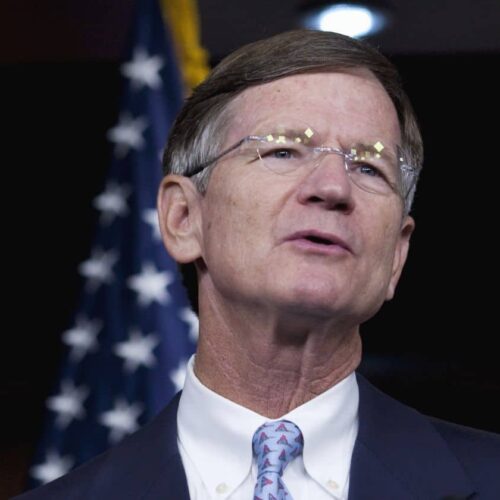Introduction
Even when Democrats controlled the Senate, Republicans found ways to put limits on the Environmental Protection Agency.
As the Center for Public Integrity reported last week, Republicans used the appropriations process to make it harder for the EPA to evaluate the dangers posed by toxic chemicals. Without the science, the EPA cannot enact new regulations to protect the public.
Now, with the GOP takeover of the Senate, the EPA faces the prospect of several bills passing both chambers of Congress that would make it even more difficult for the agency to issue rules. This time the White House is threatening to veto the bills.
Here’s a rundown of the pending legislation:
Secret Science Reform Act
H.R. 4012, which passed the House late last year, would prohibit the EPA from taking any action that relied on scientific research unless all the data were published online.
Rep. Lamar Smith, the Texas Republican who chairs the House Committee on Science, Space and Technology, said at a hearing last summer that the public has a right to see the underlying data the EPA relies on.
“If the EPA has nothing to hide, and if their data really justifies their regulations, why not make the information public? Is it because the EPA knows the data won’t justify their regulations?
But the EPA rarely does its own scientific studies. It relies instead on research published in hundreds of peer-reviewed scientific journals. The agency usually doesn’t have all the underlying data to share.
EPA Administrator Gina McCarthy fired back at House Republicans in a speech last year, saying, “If EPA is being accused of ‘secret science’ because we rely on real scientists to conduct research, and independent scientists to peer review it, and scientists who’ve spent a lifetime studying the science to reproduce it — then so be it!”
Environmental groups argue the bill “favors industry interests and undermines the EPA’s scientifically rigorous and comprehensive decision-making process. This bill, put simply, is an attempt to tie the hands of EPA, and nothing more.”
The White House says it would welcome legislation that increases transparency at the EPA but threatens to veto this bill, saying it “would impose arbitrary, unnecessary, and expensive requirements that would seriously impede the Environmental Protection Agency’s ability to use science to protect public health and the environment.
EPA Science Advisory Board Reform Act
H.R. 1422, which also passed the House late last year, sets new rules for who can advise the EPA on scientific matters.
“Despite a statutory requirement that EPA’s advisory panels be ‘fairly balanced in terms of point of view represented,’ the Agency routinely excludes private sector expertise,” said Rep. Chris Stewart, R-Utah.
Current rules require the EPA to have a balance of views on advisory boards. And many industry scientists already serve on them.
But Stewart said 22 advisors asked to review the EPA’s hydraulic fracturing research “had no experience in hydraulic fracturing and no understanding of current industry practices.”
The bill would allow scientists who have financial conflicts of interest to serve on advisory panels. But it wouldn’t allow scientists to “participate in advisory activities that directly or indirectly involve review or evaluation of their own work.”
Critics say that would keep the scientists with the greatest expertise from participating while allowing those with financial conflicts to stay involved.
“This bill opens the door for more corporate influence on the Board,” said Andrew Rosenberg of the Union of Concerned Scientists. “It creates roadblocks for academic experts to meaningfully participate… This effectively turns the idea of conflict of interest on its head, with the bizarre presumption that corporate experts with direct financial interests are not conflicted while academics who work on these issues are.”
The White House has threatened to veto the bill, saying it “would negatively affect the appointment of experts and would weaken the scientific independence and integrity of the” scientific advisory boards.
Regulatory Accountability Act
The House this year has already passed H.R. 185, which affects all regulatory agencies, not just the EPA. It dramatically changes the way agencies can create new regulations, requiring them to consider all possible alternatives and choose the one that is least costly.
Rep. Bob Goodlatte, R-Va., said his bill “is a strong, bipartisan solution to the problem of overreaching, ill-considered, and excessively costly federal regulation. The bill requires the executive branch to execute the laws passed by Congress in the least costly way, and with better public input, to find the most efficient regulatory solutions that benefit all Americans.”
But critics say the bill would make it much more difficult for agencies to enact new regulations.
“We must not allow efforts to continue which undermine critical safeguards and ensure gridlock to the federal rulemaking process,” said Kendra F. Brown of the environmental group Earthjustice. “We must do what protects the people. The RAA seeks to turn the process by which federal protections are created into a black hole.”
The White House is threatening to veto the bill, saying, “The Regulatory Accountability Act would impose unnecessary new procedures on agencies and invite frivolous litigation.”
Read more in Environment
Environment
Duke Energy fined $25.1 million for groundwater damage from coal ash
Center series on coal ash detailed health and environmental dangers
Environment
Chemical Safety Board cuts investigations amid alleged mismanagement
Allegations of severe mismanagement continue to haunt the Chemical Safety Board, tasked with investigating industrial chemical accidents


Join the conversation
Show Comments